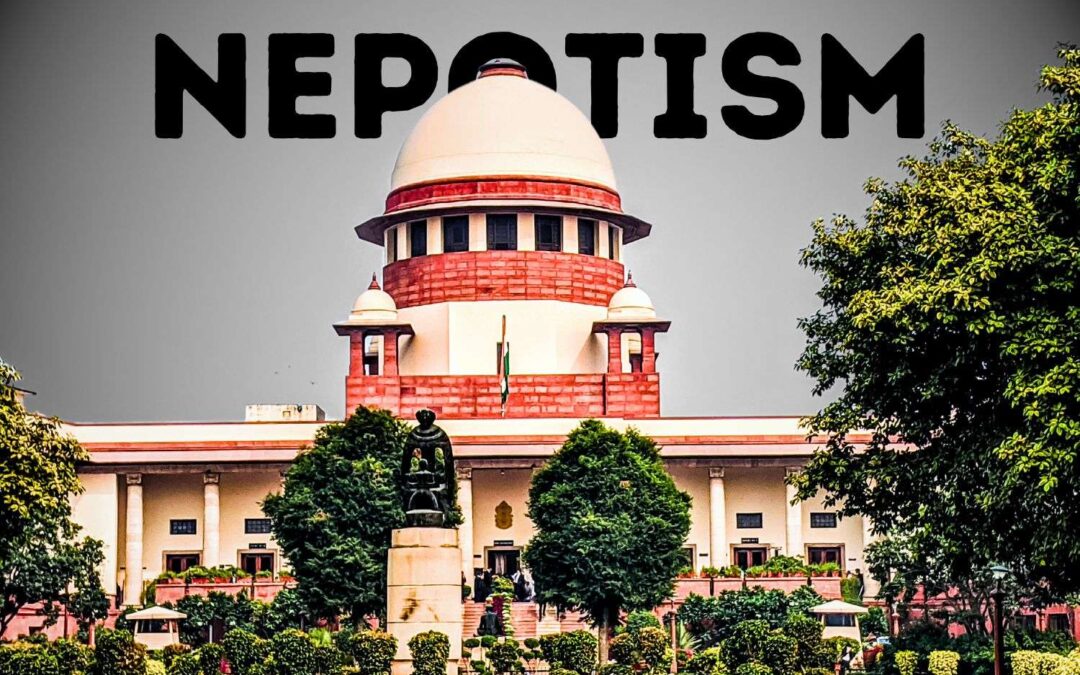I. ABSTRACT
The non biasness and fairness of the judicial system will remain intact in the democracy if the judiciary is independent. But there is a raising concern regarding nepotism and conflict of interest as to the family members of the judges getting appointed at judicial positions. Thus, this article aims to analyze the debate currently raging in the Indian judiciary with respect to the appointment of family members of judges as judicial officers. It delves in to seriousness of potential ethical hazards, conflicts of interest and more transparency and accountability in case of judicial appointments. The article examines recent developments that have illuminated the issue and the possible consequences due to ban on such appointments.
II. INTRODUCTION
The rule of law and protection of fundamental rights do not exist without the judicial system. Separation of powers has always been the principle governing the Indian judiciary and the judges manage to be independent of political intervention. However, there are worries about the appointment of judges’ family to the bench, which might weaken public trust into the system. This is a big step in cleaning up the system, given that the Supreme Court Collegium has taken a recent look at a ban on such appointments. Such an act is not only seen as counteracting the public perception of judicial nepotism but also evident in ensuring a process purely based on merit and qualifications for selection of judges. This article deals with why this proposal would be and what it poses to the judiciary. A consideration of such a ban, therefore, portrays the judiciary as being aware of keeping its independence and credibility before the public.
III. JUDICIAL APPOINTMENT SYSTEM
According to the Constitution Articles 124 and 217, the appointment of judges in India is governed. The Collegium is headed by the Chief Justice of India and the senior most judges of the Supreme Court and processes the recommendations made by the President of India. It is meant to free the judiciary of political interference in appointing judges.
IV. CONCERNS REGARDING NEPOTISM
The topic of growing concern is nepotism in judicial appointments. There is a raising question regarding the fairness and impartiality due to these practices. Such situations may lead to bias in decisions as family relations may influence judicial behavior. Further, it may damage the public faith in the judiciary’s ability to uphold the law unbiased.
V. RECENT DEVELOPMENTS IN JUDICIAL REFORMS
The Supreme Court Collegium has begun deliberating on the prohibition on the appointment of judges’ relatives to judicial positions in response to such criticisms. This move is meant to increase transparency, remove potential conflicts of interest, and reinforce the integrity of the judiciary.
Supreme Court intervenes on Allegations over Nepotism
The Supreme Court recently made it clear where it stands on allegations of nepotism in judicial appointments. Supreme Court does pull up advocate for alleging nepotism in senior designations for judge’s relatives, warns of contempt, the court reprimanded an advocate with respect to allegations over the appointment of senior judicial officers’ family members. The Court made it very clear that, in the name of baseless accusations, without concrete evidence involved tend to degrade the reputation of the judiciary and therefore issued stern warnings of contempt against the charges brought by the advocate.
VI. The Effects of the Proposed Ban
By prohibiting recruitment of family members in any judicial capacity, there may be far-reaching effects:
6.1. Rebuilding public confidence: People will perceive that the judges are appointed according to their credentials and not their mothers, thereby favoring a merit-based system, which in turn would supplement the confidence of citizens in their judiciary.
6.2. Preventing conflicts of interest: Such a ban would go some way towards removing any risk of bias or conflict of interest by reason of family ties within the judiciary.
6.3. Reaffirming Judicial Independence: With an autonomous judiciary free from outside pressures, nepotism ceases to be an important factor as far as independence is concerned.
But the proposed reform could run into resistance from those who contend that such a ban would violate the rights of qualified individuals, especially those in judicial families who are qualified otherwise. These concerns would have to be carefully walked around by the Collegium, while at the same time keeping the system free from undue influence.

